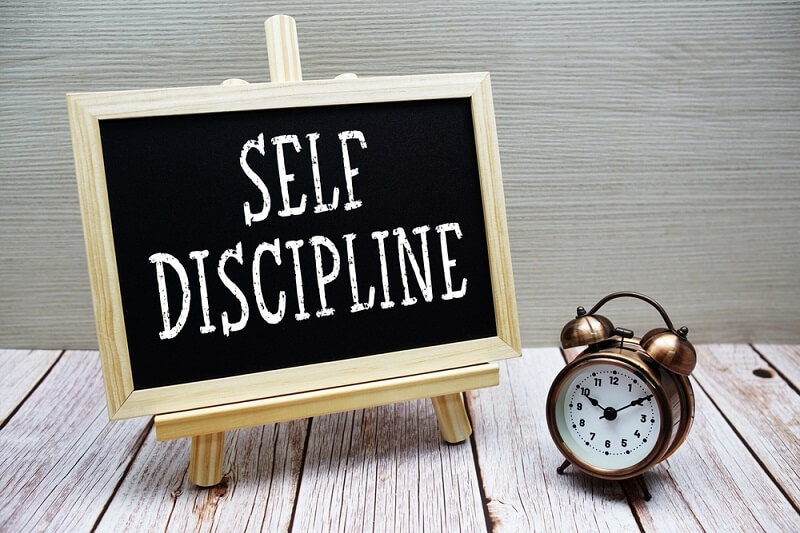Self-Discipline Techniques for a Stronger and Balanced Life

In a world filled with distractions, where we are constantly seeking instant gratification, the skill for staying aligned with your goals feels like its own superpower. You set ambitious goals on Monday, and you've lost your motivation by Wednesday. The problem is not intelligence or a lack of talent; it's a healthy mix of self-discipline techniques. This is not self-flagellation or self-denial; discipline is ultimately the portal to freedom—that which can enhance personal discipline, allow for more profound connection to your commitments, and ultimately design self-control to achieve your ambitions and take charge of your life. This article is a how-to guide to get you that power.
What is self-discipline?
Before beginning with the techniques, let's recast our perspective. Self-discipline tends to be painted as a bleak, joyless war of willpower. In fact, it is more accurately defined as being true to your core values and, by extension, the actions you take as they relate to those values, irrespective of your momentary feelings. Ultimately, self-discipline is your bridge from the goal you have set to the goal you can achieve. Self-discipline is choosing long-term satisfaction from goal completion versus a temporary high from the distraction. When you have this down, you stop being a slave to your changing moods and whims. Instead of just letting things happen to you, you learn to be the builder of your own life, and as a result of being conscious, you are now intentionally crafting your days.
Laying the Foundation: How to Build Self-Control from the Ground Up
Without learning to walk first, you cannot run a marathon. Likewise, expecting extraordinary discipline from nothing will only lead to an unsuccessful start. The sustainable way to build self-control is to begin with small, confirmed commitments and move on to bigger things as you build trust with yourself.
- Start with "Micro-Commitments": Instead of committing to an hour of exercise, promise to do 5 minutes. Rather than clean the entire house, promise yourself to wipe down a single countertop. These slow, tiny wins produce more surplus evidence for you—because you are currently training your brain that you are 'someone who follows through.'
- Reduce Decision Fatigue: Willpower is a finite resource. Every single little decision—what to wear, what to eat for breakfast—is a depleting decision, not to mention all the other things going on in your life each day. Make your life easier by making it more habit-based and establishing routines. Pre-plan outfits for the week. Stick to a basic healthy breakfast each day. Pay your bills automatically. All of these small systems help save your mental energy for the decisions that are truly difficult and require real self-discipline techniques that we will discuss.
- Design Your Environment: Your willpower will not matter against a poorly designed environment. If you want healthier food options, stop eating junk food in your house. If you spend much of your day on your phone and want to spend less time on it, charge it in another room at night. Make it easier to execute the desired behavior or mindset while increasing the difficulty of the undesired behavior or attitude.
The Engine of Progress: How to Stay Consistent When Motivation Fades

Motivation will always be short-lived. Motivation is the flame that starts the fire—but discipline is the gas that keeps it burning. Learning to be consistent is the essence of creating sustainable change.
- Harness the Power of Habit: Discipline is a habit. Once something is habitual, it takes much less cognitive effort. Attach new habits to something you ordinarily do. For example, "After I brush my teeth in the morning, I will meditate for one minute." This is "habit stacking." It provides a reliable structure you can build upon to improve your personal discipline over time.
- Think Systems, Not Goals: A goal is what you want to achieve (i.e., "I want to lose 20 lbs."); a system is what you are doing daily to achieve that goal (i.e., "I will eat a vegetable with every meal and walk for 30 minutes daily"). By focusing on the system's obligation and not necessarily the goal, you relieve pressure on your distant goal, which will ultimately improve your consistency and help you find joy in the process. This is a significant shift in your mindset and directly answers the question of how to stay consistent.
- Track Your Progress Visibly: Consider using a planner or filling out a habit-tracking app. Mark each day you accomplish your intended action with a big red "X." This creates a visual line of success. Your only job is not to "break the chain." This method gives a powerful, tangible reason to follow through without the burden or hassle on the days you don't want to.
Daily Discipline Hacks for Immediate Impact
Although forming habits is the long-term goal, you need a few hacks occasionally to get you through the day. Those hacks are simply tactical tools to put into your toolbox of daily disciplines.
- The Five-Minute Rule: Getting started is the most challenging part of almost any job. Battling against the resistance is simple. Just tell yourself you will do it only for five minutes. Once you start, you will often find momentum takes over. If not, you have done five minutes more than you would have without that hack.
- The "Two-Day Rule": There is a rule with a bit of power for how to be consistent. That rule is never to miss your new habit two days in a row. Miss a day; that is okay—life happens. Being unable to do two days in a row is a habit; you start on a path that is better to avoid. The two-day rule embraces that you'll slip up, but it won't be a habit to miss or a destructive chase of compulsive relapsing.
- Temptation Bundling: Pair a dreaded action to be done outside in a hostile environment with something you enjoy. Only listen to your favorite podcast because you only do it when you go to the gym or work out. Only get a specialty brew (style) of coffee/special (i.e., latte...) when working on your most important project. The goal is to pair two things together, which eventually trains your brain to link pleasure with your necessary activity, which ultimately enables you to "get started" on the action of discipline (and often makes it easier).
Cultivating Long-Term Discipline Habits for a Transformed Life
The ultimate aim is to make discipline an intrinsic part of your character. These long-term discipline habits are about shaping your identity, not just checking boxes.
- Practice Regular Reflection: Set aside weekly time for a brief review. What went well? Where did you struggle? What can you adjust? This isn't about self-criticism; it's about strategic refinement. Adapting your approach is a sign of wisdom, not weakness, and is crucial to continuously improving personal discipline.
- Connect to Your Deeper "Why": Discipline fueled by "shoulds" will eventually sputter out. You need a powerful "why." Why is it important to be healthy? To have more energy for your kids? To build a secure future? The journey becomes meaningful when your actions are connected to your core values. This deep connection is the bedrock of all sustainable long-term discipline habits.
- Prioritize Recovery and Self-Care: Discipline isn't about relentless grinding. It includes the discipline to rest, sleep well, and engage in activities that recharge you. A burnt-out mind has no capacity for self-control. View recovery not as laziness, but as an essential maintenance ritual for your most important tool: yourself.
Overcoming the Inevitable Obstacles
No journey is without its setbacks. Expect them, and have a plan.
- Managing Failure: You will have off days. The key is not to let a lapse become a collapse. Practice self-compassion. Acknowledge the slip, learn from it, and recommit immediately. Beating yourself up only drains the energy you need to get back on track.
- Dealing with Cravings and Urges: When a strong impulse hits (for distraction, junk food, etc.), don't fight it directly. Instead, pause and observe the sensation without judgment. Set a timer for 10 minutes and tell yourself you can give in after it goes off. Often, the urge will pass on its own. This practice is a master-level technique for building self-control.
Conclusion
Developing self-discipline skills is a long-term journey made up of many little steps. It begins with small, deliberate actions that gradually build the muscle of self-control. With daily discipline hacks and long-term discipline habits, you shift discipline from something burdensome into one of the most significant sources of personal effectiveness & power. Remember, the aim is not perfection; it’s the tiniest progress to keep going. Each new day is a unique opportunity to act towards the life you actually want to live. Start doing little behaviors to build your discipline muscle, cut yourself some slack, and enjoy the journey.
This content was created by AI

